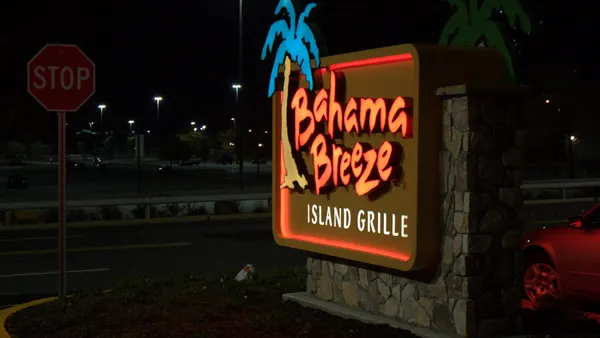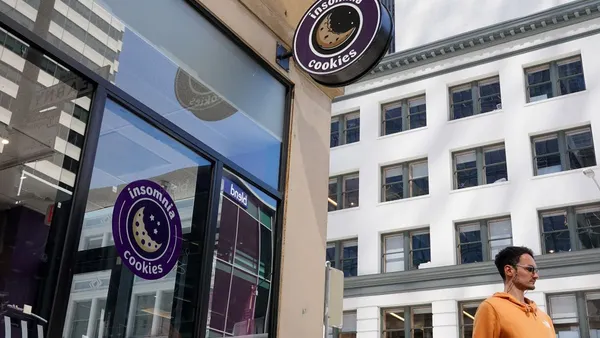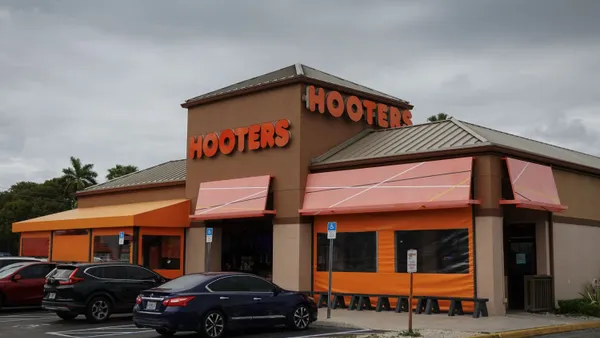Dive Brief:
- Spacious, a startup acquired by WeWork in August that helps high-end restaurants operate as coworking spaces during slow times, is the latest casualty in WeWork's failed IPO and will close at the end of the year, according to Restaurant Hospitality
- Spacious was created in 2016 to take advantage of underutilized urban spaces, and has since converted dozens of restaurants and vacant retail spaces in the New York and San Francisco markets to serve the coworking crowd.
- "As part of WeWork's renewed focus on its core workspace business, Spacious will close its doors December 31, 2019. We regret any disruption this may cause to you or your business," said an email sent to Spacious customers on Thursday.
Dive Insight:
The biggest advantage for operators leveraging Spacious was the creation of an additional revenue stream during slow times. But now those restaurants will lose that income, a big deal for an industry that runs on razor-thin margins.
The restaurants are also losing their ability to maximize their space, which is also critical considering occupancy costs can take up 6% to 10% of a restaurant's gross sales. They may also very well lose an intangible marketing piece. As Spacious CEO and co-founder Preston Pesek told Restaurant Hospitality in July, the concept provides "greater exposure, greater visibility to the neighborhood residents, a different level of access than was previously available, and we deliver a crowd of people in your space."
Still, just because Spacious is shuttering doesn't mean there's not a market for these types of co-sharing spaces. Arguably, Spacious is simply a victim of WeWork's very public failure, and isn't the only company that is being shut down or going through layoffs as a result of WeWork's cost-cutting efforts. The $42.5 million acquisition itself was under scrutiny in October after a whistleblower claimed WeWork approved the acquisition without seeking outside professional review of Spacious's financials, a move the is unheard of during the transaction process, according to the New York Post.
However, plenty of other restaurant coworking spaces, like DropDesk, Flexday and KettleSpace, seem to be doing just fine, perhaps illustrating the viability of the model. KettleSpace co-founder Nick Iovacchini, who also owns a restaurant, told Upserve that the opportunity to offer a coworking space allowed his restaurant to monetize assets differently. He also said it's been more profitable than the restaurant business because partnership fees go straight to the bottom line.
A no-rent, low capital expense model makes plenty of sense for some businesses, which is why the coworking space in general has experienced staggering growth. One study predicted that 5.1 million people worldwide will use such a space by 2022. Whether use of a restaurant space for a fee is their solution, particularly when there are plenty of coffee shops and other restaurants offering free WiFi, is another question.
The differentiator for Spacious was its high-end restaurant space, which likely attracted a different crowd than a fast food restaurant with free WiFi, but its financial future was a bit of a question mark, especially since its expenses exceeded its revenue. The company has yet to respond about how it will move forward, if at all.












